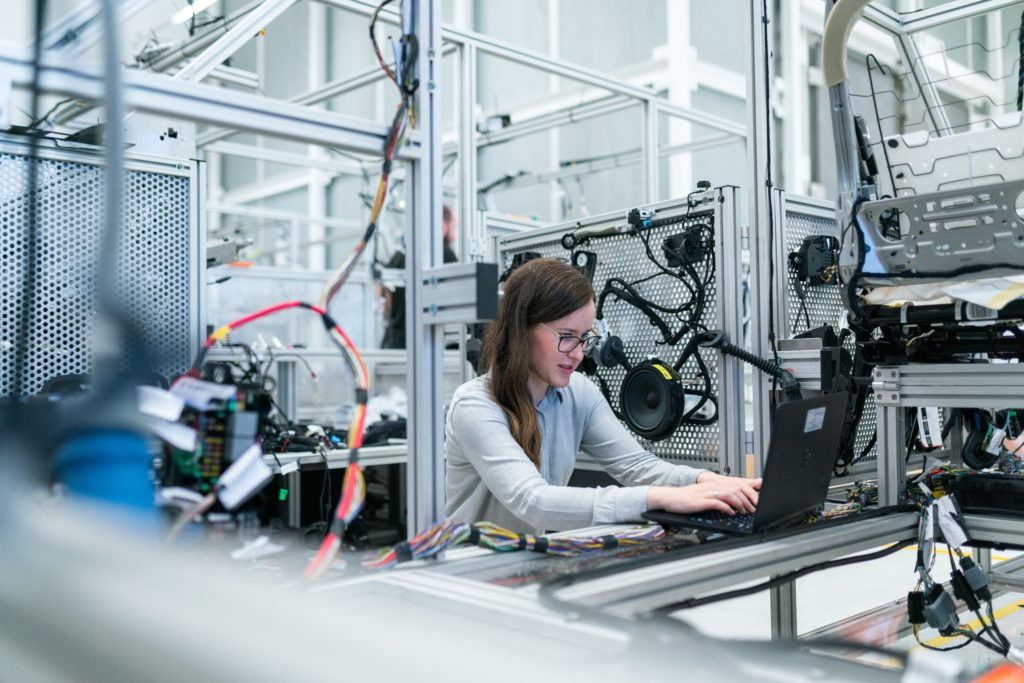According to the National Association of Manufacturers, manufacturers accounted for 11.39% of the total output of the economy, and employed 8.51% of the workforce in the year 2018. Another 2018 study done by PRNewswire-USNewswire found that family-owned businesses create 78% of new U.S. jobs and employ 60% of the workforce (obviously this accounts for more than manufacturers). While I am admittedly biased to the importance of these numbers given that I have grown up in a family-run injection molding business, I resoundingly believe in the importance of manufacturing for multiple reasons that extend beyond the reasons already mentioned (economic output and job creation). Here are three not so obvious reasons why manufacturing matters.
Manufacturing provides dignity to large segments of society that are not offered legitimate opportunity elsewhere. CBS news reported in December 2019 that “about 40% manufacturing workers now have college degrees,” but this means that more than 50% do not. To this end, manufacturing offers many job opportunities to people with only a high school degree. Manufacturing jobs also shield many from unnecessary debt. Given that by November 2020 the average borrower owed $37,172 in student-loan debt, manufacturing can be a better alternative than attending four-year universities for some. While this is not a plea that four-year education as we know it is finished, nor is it a suggestion that four-year degrees are not worthwhile for some fields, it is to say that manufacturing can offer job opportunities that are not available in other fields. Further, manufacturers are often willing to pay for trade schools, and in some cases, four-year degrees through apprentice programs. These programs not only provide jobs at their completion, they also shield enrollees from unnecessary debt. What makes this all-the-more important is that manufacturing cares little about race, gender, or any external marker. Admittedly, this was not true historically, but the times have changed. At Hoffer Plastics we are observing women working in the traditionally male-dominant tool room, and minority workers in automation, maintenance, and various other programs. This is an awesome development!
In addition to giving human beings dignity, manufacturing provides for the upward mobility of the worker. While some continue to point to the historical injustices of the past, and assume they are still prevalent today, my experience suggest these stigmas are no longer true in manufacturing. My personal belief stems from the relationships I have had at Hoffer Plastics with individuals that have advanced all the way to the top of our organization from the “ground-level.” One man, for example, rose from an entry-level worker to General Manager, and another woman rose from an entry-level inspector to the Director of Quality. Both of these individuals have since retired, but we still have examples to point to like a first-generation immigrant leading our Tool Room, and several Plant Managers who began their careers as 18-year-olds in entry-level positions. In talking with leaders at other manufacturers, our experience is hardly exceptional. This is because manufacturing continually needs more people than generally available in the job pool. Therefore, manufactures are incentivized to grow people within, and subsist on a meritocracy based on equal opportunity. Upward mobility of the worker will be our collective lifeblood going forward.
Finally, in addition to the dignity and upward mobilization of the worker, manufacturing impacts the local community in multiple ways. First and foremost, manufacturing provides jobs to communities that depend on them. What I mean here is jobs in rural places where other job opportunities are sparse. Our business, for example, has taken me to cities in North America, Europe, and Asia, that would be otherwise off the beaten path. Without manufacturing, one could question how the people living in these communities would make a living? Further, manufacturing supports local communities through charitable giving. Admittedly, this various from manufacturer to manufacturer. But, I have been personally reminded of this during the last twelve months as non-profits have reached out to us for assistance during these trying times. While other manufacturers may have a different world view, we believe that any success of ours leads to good news for those in our community. To that end, we want to be good stewards of what God has blessed us with by giving back and hopefully blessing others. This may sound idealistic, but it is what we have done for almost seven decades. We applaud those who do the same, and there are many!
While this post differs in content from the usual discussion on leadership and personal development, I start off 2021 with it because advocating on behalf of manufacturing jobs is a large part of my professional why. I am continually challenged when I walk our floor and converse with team-members of various ethnicities, faiths, and just about every kind of belief system imaginable. Yet, despite all these differences, we have collectively come together through the reality of manufacturing. As our society continues to have serious conversations about all these matters, and as tensions have continued to rise, manufacturing can be part of the solution. Simply put, manufacturing done well is a place where people come together to make things that benefit others. So, leaders, our desire for the improvement, advancement, and the value of human beings can never be questioned.
In the professional context, my advocation for manufacturing jobs will never tire because human beings, all human beings, matter to God. Thus, they matter to me. So, to that end, let’s utilize manufacturing and all work for the betterment of human beings and community.

